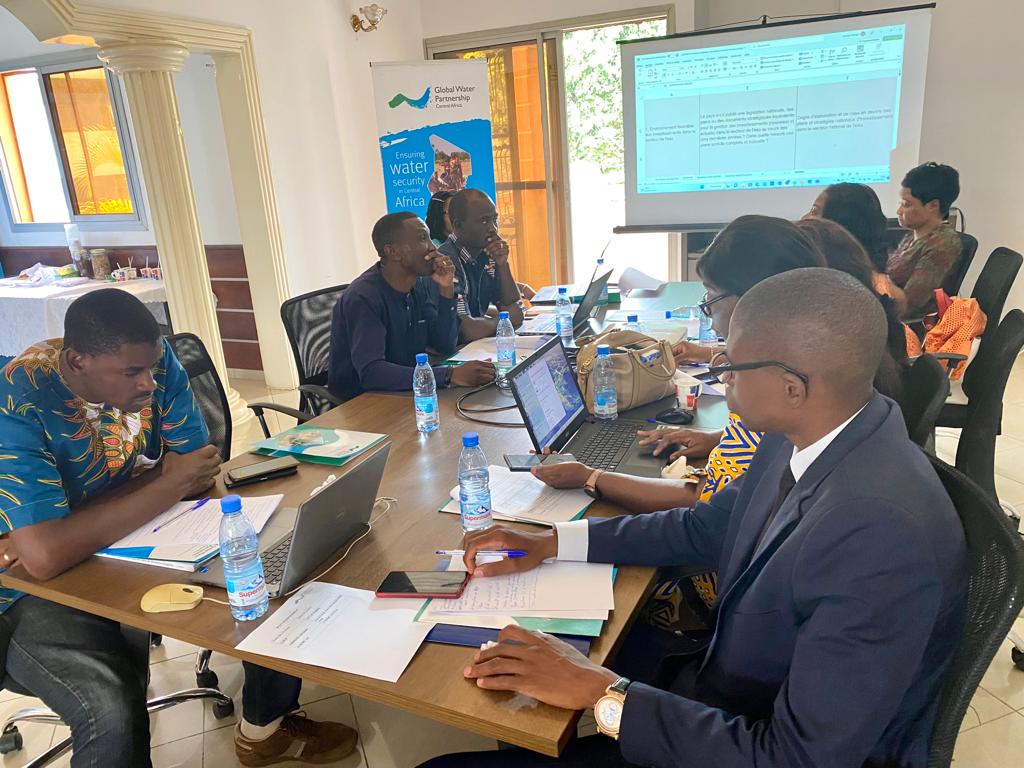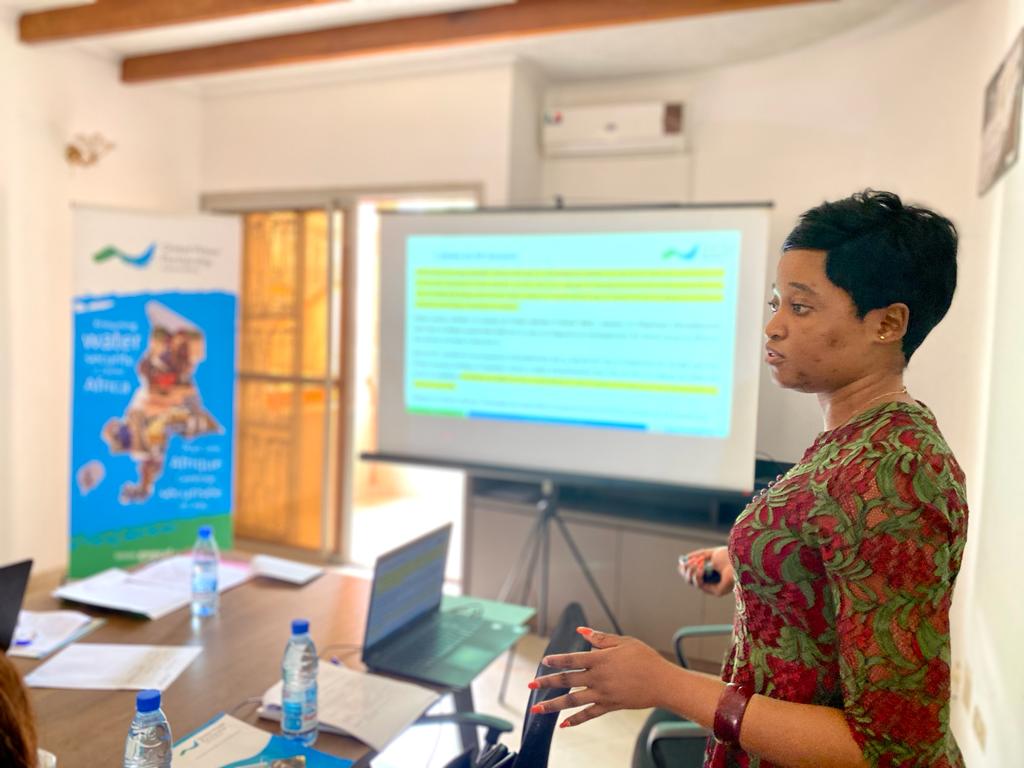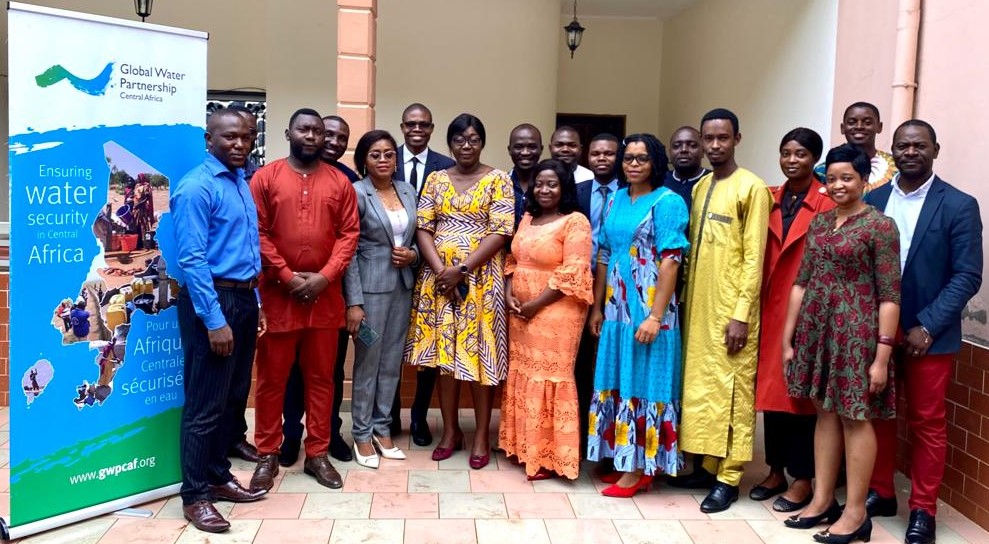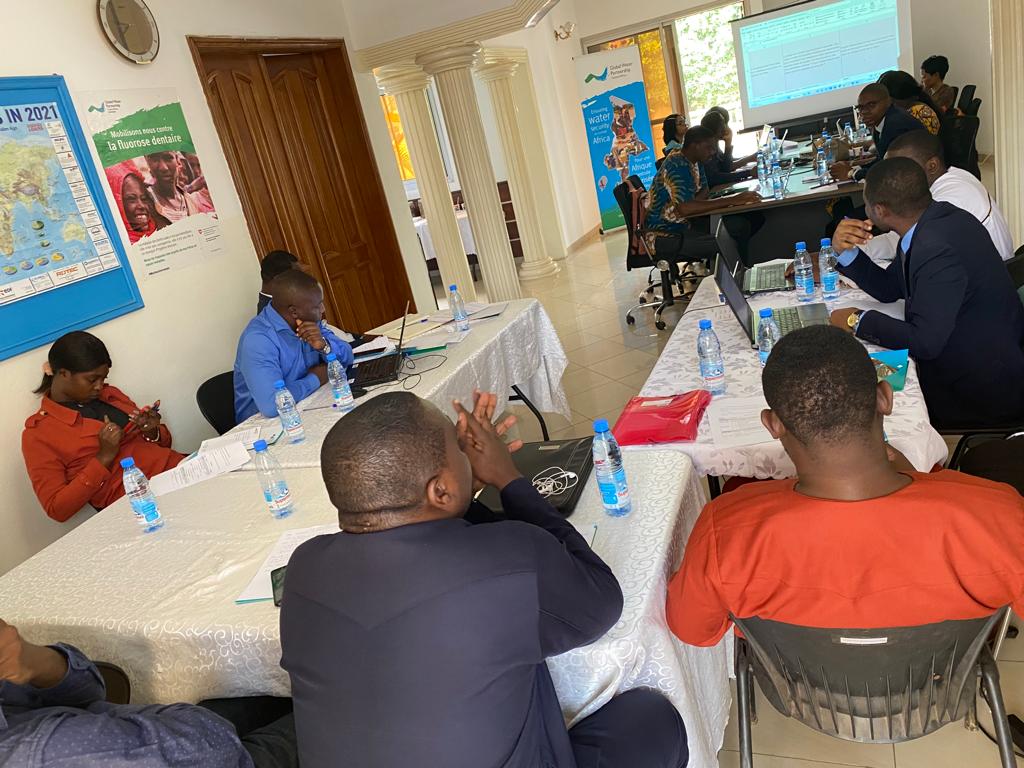This workshop was organized as part of the implementation of the AIP WACDEP-G programme which aims to address gender inequalities in the water and climate sector by promoting a gender transformative approach. The main objectve of the AIP- Scorecard is to track priority water related investments indicators and assist country leaders to improve accountability, monitoring, and response to the water investments gaps in Africa. Following the adoption of the AIP-PIDA Water Investment Scorecard by the African Union in 2022 as part of the Programme for Infrastructure Development in Africa (PIDA), 10 countries including Cameroon were identified to test the AIP Scorecard. A desk research was carried out to collect the necessary data to score the indicators on the scorecard in each of the 10 selected countries. This data requires verification by key stakeholders before it can be integrated as the country’s score and in Cameroon, the 20+ stakeholders met to complete this scoring exercise.

While speaking at the opening ceremony, the Executive Secretary of GWP-CAf, Mr. Djibrilla Mohamadou reminded participants of the water investment gap in Africa and how the AIP scorecard will help close that gap. “The scorecard aims to reduce the water investment gap of US$45-US$54 billion per year by mobilising US$30 billion/ year by 2030 and create 5 million jobs towards the African Water Vision 2025 and 2030 SDG 6 targets”, he said. Kicking off the interactive workshop, WACDEP-G coordinator, Murielle Elouga presented the AIP Scorecard tool, its indicators and the methodology used to fill the scorecard to the participants to ensure a shared understanding and better guide the verification exercise. She also highlighted the alignment of the AIP Scorecard with the WASSMO tool in that the AIP Scorecard complements WASSMO in terms of planning, financing, and sustainability of investments in the water and climate sector.

The participants then engaged in the score evaluation exercise going through the three main pillars of the AIP Scorecard, which are: (i) enabling environment for water investments, (ii) investment and financing in the water sector, (iii) efficiency and sustainability of investments. Based on several arguments backed by existing texts, policies and ongoing projects in the water sector, some slight changes were made to the scores and justifications provided as required. Overall, in terms of learning, the stakeholders recognise the AIP Scorecard tool as a means of learning about some of the weaknesses of water sector investment planning in Cameroon, like the little or non-inclusion of gender, the absence of climate risk assessments in the planning of investments in the water sector and poor monitoring of water sector investments.

At the end of the consultation process, the participants made recommendations to further enrich the AIP scorecard scoring process to ensure that it attains its objectives in Cameroon. For the next steps, the initial country report and scoring will be evaluated and updated based on the feedback received from the stakeholders at this meeting.
